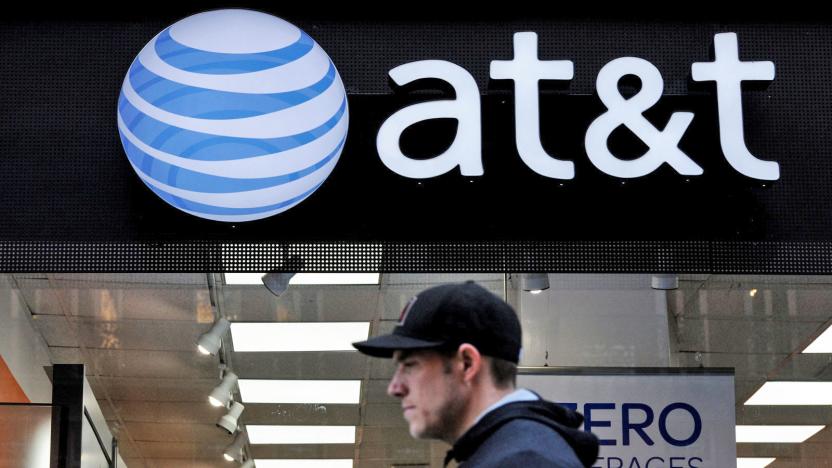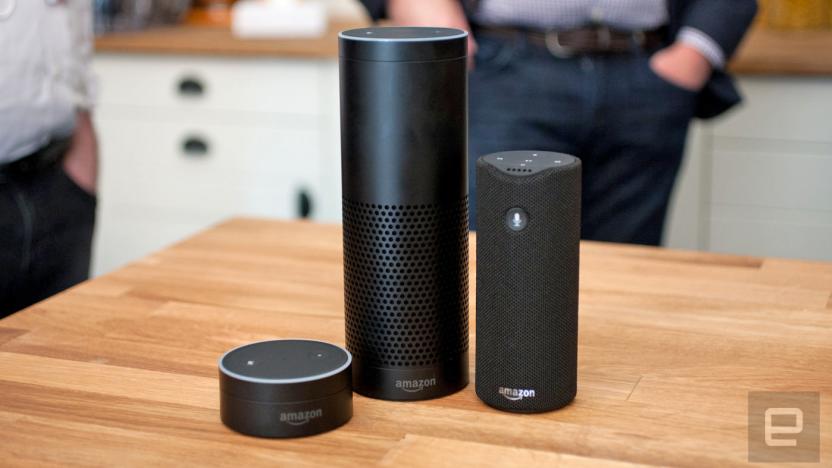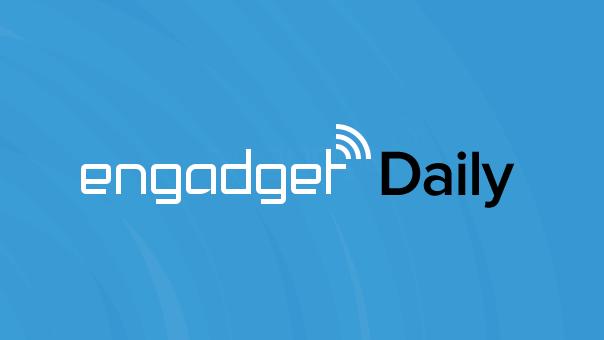bills
Latest

AT&T just made it possible to pay your phone bill with bitcoin
Have some spare bitcoin kicking around? You can put it toward your phone service. AT&T says it has become the first big US wireless carrier to accept cryptocurrency for online phone bill payments. Choose the BitPay option at MyAT&T and you can cover your bill with bitcoin instead of conventional funds. You can't use this in-store, alas, but it could make sense if you'd rather save old-school money for other purposes.

Google's Indian mobile money app can pay bills in a few taps
Manually paying your bills online usually involves jumping between multiple apps or websites, but Google might have an easier way. Its Tez mobile money app for India now includes a bill payment feature that lets you handle all those recurring costs in one place. You can add from a list of 80-plus companies (including utilities and telecoms) and pay directly from your bank account with a few taps. You get notifications when bills pop up, so you shouldn't forget about a bill until it's too late.

Right to Repair bills introduced in five states
Anyone with a cracked iPhone screen knows what a pain it is to go through Apple to get it repaired. You have to make a Genius Bar appointment, which may or may not still require you to wait around for a service technician. Then it could be hours before you get your precious back into your possession. Or, you could use one of the repair kiosks found in nearly every mall in the United States and be back in business in about 45 minutes.

Pay your credit card bill using the Amazon Echo
Too busy whipping up a soufflé to check your bank balance online? You can now ask Amazon's Echo devices to give you the info, thanks to a partnership with Capital One. You just need to say "Alexa, ask Capital One for my Quicksilver card balance" or "Alexa, ask Capital One to pay my credit card bill," for instance. The voice assistant can already turn on your lights, play Spotify music, get you an Uber and check election results. However, Capital One is the first credit card or banking service to work with the expanding family of devices, which are only sold in the US.

Daily Roundup: Mars One criticism, paying bills with Gmail and more!
What's happening in the world of technology today? We interview Bas Lansdorp, the CEO of Mars One, and ask about recent criticism of his organization's project. In other news, you may soon be able to pay bills from inside Gmail and the White House snags another Silicon Valley veteran to help rub the administration's Office of Digital Strategy. Read about these stories and more in today's daily roundup.

You could receive and pay bills in your Gmail by year's end
Google will remind you of some upcoming bills (if you're down with the contextual beauty that is Google Now at least), but that's not all the search giant is doing with that knowledge. According to a document obtained by Re/code, Google's working on a way for you to receive bills from your service providers in your Gmail account, and pay for them without having to leave the confines of your inbox. The service, currently code-named "Pony Express," is apparently being prepped for a launch in late (think fourth quarter) 2015.

Google's search app now reminds you to pay your bills
You might not have to set reminders to pay your bills on time in the future. After a bit of testing with a limited audience, Google has updated its mobile search app to show both upcoming and past bills it finds in your Gmail. So long as a notice mentions both the due date and the amount you owe, it'll show above regular web results. If you've ever fretted over racking up late fees, you'll probably want to start using this right away.

Three reminds Vodafone patrons they can still cancel their contracts for free
Vodafone decided in May to tell everyone it was committed to never increasing prices mid-contract, and Three was quick to highlight its identical policy -- one that's shared across the industry thanks to Ofcom regulations that state any customer can ditch their contract without penalty should pricing go up during the term. Vodafone then announced that same month it would be upping the cost of charges incurred when going above your monthly allowance of calls, texts and data. While the increases don't technically affect monthly contract pricing, they still meet the Ofcom criteria thats allows customers to exit their contract scot-free. And, with the new overage charges coming into effect on June 28th, anyone that wants to take advantage of the easy out needs to tell Vodafone they're leaving within the next few days.

Vodafone pretends it's doing you a favour by not upping prices mid-contract
Vodafone took to its blog today to affirm a commitment: customers on any pay-monthly plan will never see its cost increase mid-contract. Three saw this as an opportunity to tweet about its identical policy, but haven't we heard all this before? But of course we have, when new Ofcom rules came into effect in January that meant anyone could dodge early termination fees and ditch their contract should prices go up during the agreed term. O2's found something of a loophole by adding a clause to contracts that has you agree to price hikes in line with inflation, while EE's simply played ball. Unlike Three, Vodafone's never actually spoken out in agreement before, but the network isn't doing you as much of a favour as it'd have you think. If prices were to shoot up mid-contract, it'd mean lost business, so the commitment is very much in Vodafone's interest. Let's be frank -- if anyone's really to thank for the carrier's new honourable stance, it's Ofcom.

EE, Orange and T-Mobile phone bills set to rise on May 28th
If you missed the postman this morning, then we hate to be the bearer of bad news, but you might be returning home to a letter detailing an imminent increase to your monthly mobile phone bill. As of May 28th, customers on EE's 4G network or the 3G sub-brands Orange and T-Mobile will be expected to fork out another 2.7 percent on top of what they're already paying each month -- the charges for anything beyond your allowance will go up slightly, too. We'll leave you to crunch the numbers, but basically the price hike is in line with inflation, meaning you kind of agreed you'd be cool with it when signing those T&Cs you read so thoroughly. If you want to cancel your contract, then, we're afraid you'll be paying early termination fees. If you signed a new contract or upgraded after January 23rd this year, however, then nothing's going to change for you. Under Ofcom's rules -- the ones O2 ain't following -- anyone in that situation could exit their contract scot-free, and EE'd likely prefer the business. If only our data caps rose with inflation, too.

Proposed GOP bill excludes violent software makers from tax credit
The recently revealed Tax Reform Act of 2014 by House Republicans has caught the attention of some folks in these here parts for preventing makers of violent video games from qualifying for tax credits. The Washington Examiner correctly points out that in the bill's executive summary (a fancy term for overview) that violent video games are specifically called out. The Entertainment Software Association, the US trade organization that puts on the annual E3 show in Los Angeles tells Joystiq, "This industry, like all software developers who would be impacted under this proposal, invests billions of dollars every year in research and development and this proposal threatens American technological advancement and economic growth. We look forward to continuing to educate policymakers on our societal and economic contributions and the need to preserve and expand this unique industry." Although the executive summary mentions video games, the actual bill's language doesn't. However, it does exclude software development from the tax credit, which would be an even bigger issue. [Image: Pixel-3D via Shutterstock]

iPhone owners have the highest cellular bills among smartphone users
Carriers may not like iPhone users who consume a lot of data, but they cannot complain about the whopping bills these customers pay each month. According to a survey by Consumer Intelligence Research Partners (CIRP) and reported by AllThingsD, almost 60 percent of iPhone users pay more than US$100 per month for their wireless plan. A surprising 10 percent pay more than $200 per month to keep their iPhones always connected, while only 6 percent are on a budget plan that costs $25 to $50 per month. Android users, on the other hand, tend to pay less for their wireless service plans, with 14 percent rocking bills that cost less that $50 per month. Only 7 percent break the bank with bills that balloon to over $200 per month. CIRP co-founder Michael Levin says iPhone owners pay more because the iPhone traditionally has been offered on the major wireless carriers in the US. "We think it has to do with their data plans and carriers, rather than their usage habits," explained Levin. "They are all on expensive data plans, unlike Android users, some of which are on prepaid or unsubsidized plans with regional carriers."

Mach inks carrier billing deal with Everything Everywhere, O2, Vodafone and Three in the UK
Not a month after Mach's last carrier billing deal, UK network providers Vodafone, Three, O2 and Everything Everywhere are getting in on the action. The company's direct billing solutions will initially allow the networks to charge app and online purchases straight to your bill, with in-app sales joining them at a later date. Don't expect this to be implemented immediately, however, as the agreement covers the back-end processing -- the individual carriers will be responsible for turning it on customer-side. They'll likely inform you when they hit the switch and your phone bill becomes a monthly surprise.

House passes bill that would call for a single website tracking federal spending
The last time a proposed law captured our attention it was so widely loathed it was never even put to a vote, but today we bring you the kind of no-brainer legislation that seems to have strong support on both sides of the aisle. The US House of Representatives has passed the Digital Accountability and Transparency Act (DATA), a bill that calls for the creation of an independent board to log all federal spending on a single, centralized website. What's more, these expenses need to be recorded with identifiers and markup languages that make them more easily searchable. As Computerworld notes, the vote happens to come on the heels of a recent dust-up involving the US General Services Administration spending $823,000 on a conference in Vegas -- precisely the sort of excess this proposed website would be designed to expose. The next step, of course, is for the bill to win Senate approval, though for now it seems the legislation has garnered strong bi-partisan support: in a rare showing, all of the lawmakers who discussed the DATA Act on the House floor argued in favor of it.

FCC begins tracking wireless carriers' implementation of bill shock notifications
If you've ever mistaken your wireless bill for your phone number, only to discover a dollar sign in front of all those digits, you're far from alone. The CTIA estimates that one in six mobile subscribers have experienced bill shock, but thanks to the efforts of the nation's wireless carriers -- along with a bit of help from the FCC -- consumers will start to receive notifications of any potential overages, along with alerts when the threshold has been crossed. The program is still in its infancy, but the FCC has launched a website to track wireless carriers' implementation of the notification system, which will alert consumers to any voice, data, SMS or international roaming charges. Carriers have until October 17th to have alerts for at least two of these categories in place, and will have until April 17th of next year to implement all four. Consumers may track the monthly progress of individual carriers at the FCC's bill shock website, but for a current peek at their progress, just hop the break. [Bill shock photo via Shutterstock]

Daily iPhone App: Bills is a colorful bill management and payment tracking app
Bills from Sockii recently landed in the iOS App Store, and we took the bill tracking app for a spin. Like its competitors, Bills has all the core features you need to track and organize your bills. It has statistics to let you see where your money is being spent, categories to help you organize bills, a customizable history that lets you display bills within a select time frame, reminders, and more. If you need to backup your data, Bills has iCloud support, so you can backup and sync across devices. There's also a payment tracker that lets you enter the date and the amount you paid for a bill. The payment information is stored within the app and viewable as a payment history. Unlike BillMinder, Bills does not let you send this payment information to a third-party app like Pocket Money. If you like your user interface to have more than shades of grey, then you will like Bills. The app has colorful interface that uses a wood backdrop, purple headers, black background for text and green and blue buttons. The biggest problem I encountered with Bills version 1.0.3 is its picker wheel. When you enter a bill, the app uses the picker wheel to select the category, repeating frequency, and reminder. These wheels have an unusual behavior that prevents you from scrolling downward when you reach the top item on the list. For example, I can select the category picker and scroll to the first item, which is "Cell Phone". If I change my mind and want a different category like Utility, I can't scroll back down. I have to grab the picker wheel, pull it down and then flick it back up to move the wheel again. This doesn't happen on other apps with picker wheels, and occurred on two different iPhone 4S handsets and my iPad, all of which are on iOS 5.1. If you really want a colorful Bill tracking app and can tolerate the unusual scrolling, then you might want to add Bills to your list of apps. It costs US$2.99, so you should think hard first before making that choice. If the scrolling turns you off, then you should wait for an update or look elsewhere. There are several other quality bill tracking apps like BillMinder from return7 and BillTracker from SnapTap, which is on sale for 99-cents as of the writing of this post. You can download Bills from the iOS App Store.

World of Warcraft Monopoly money features heroes on the bills
Kotaku has got the scoop on the cool fake Monopoly money to be included with the World of Warcraft Monopoly game. Each bill features a faction leader (and Chen Stormstout) on the various notes, with familiar faction art representing the heroes. Here is the breakdown of characters on each bill: $1 bill Chen Stormstout $5 bill Magni Bronzebeard $10 bill Vol'jin $20 bill Tyrande Whisperwind $50 bill Sylvanas Windrunner $100 bill Varian Wrynn $500 bill Thrall Check out the gallery below of each of the Monopoly money game pieces. (Thanks to Kotaku for the story.) %Gallery-150754%

SOPA: Who's in and who's out?
By now we're sure you're aware that SOPA is more than just a tomato-based noodle soup. The Stop Online Piracy Act's been stirring controversy with its intentions, and it'll most likely continue in this path until we hear a final decision. Go Daddy wasn't shy -- before retracting -- about its support for the bill, and things have changed drastically since we first heard some of the "top dogs" express their feelings. But who else is behind it, who's got your back, and who's had a change of heart? The answers await you after the break.

FCC and CTIA get set to hit back against bill shock
Bill shock? It's "a real consumer problem that needs to be fixed," according to FCC chairman Julius Genachowski. The department teamed up with the CTIA and the Consumers Union today to address the problem of unexpected mobile bill charges. The solution? Alerts about overages and international roaming sent to subscribers before they rack up bills they can't afford. It's a plan the organization talked up last year, thanks to the findings of a Consumer Task Force. The FCC hopes that a rollout of the plan will be completed in the next 12 months.

U.S. government hits snag printing new $100 bills, prints old ones instead
The U.S. Treasury Department may have been eager to open the doors to its money printing factory back in July to show off its brand new $100 bills, but it looks to be a decidedly different story today. As CNBC reports, all of the added security measures have apparently been harder to print than expected, and have resulted in a creasing problem that has left some bills with a blank portion on the face. The real problem, however, is that it's not clear how many bills have the flaw, which has forced the department to "quarantine" some 1.1 billion bills until they can be sorted -- one person familiar with the matter says as many as 30 percent were affected at the height of the problem. As you might expect, that accounts for a pretty big chunk of the bills intended for circulation, which has forced the fed to print some more of the older $100 bills that still feature Bush Treasury Secretary Hank Paulson's signature in the meantime.












